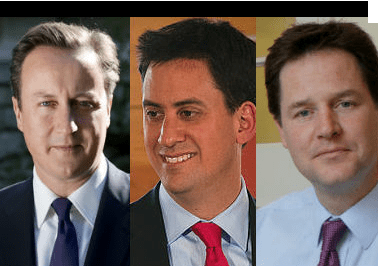 With the hectic party conference season behind us for another year, it seems like a good time for the political nerds among us to reflect on the highs and lows, and winners and losers of the season.
With the hectic party conference season behind us for another year, it seems like a good time for the political nerds among us to reflect on the highs and lows, and winners and losers of the season.
There is nothing quite like the excitement of these three weeks. Politicians, lobbyists and political enthusiasts, come together in venues across the chosen cities to debate issues over slightly stale sandwiches and soggy quiche. With the increasing media interest around politics at this time, it can be easy to lose sight of the fact that for the party faithful, conference season offers the chance to be directly involved, to vote on policy and to hold their party accountable.
At this annual opportunity, each party leader gets to be the sole focus of the media spotlight for a week; but how much does conference season really impact a party’s prospects? This year the answer is probably that it has had much more of an impact on the leaders’ individual ratings rather than the party as a whole. While the polls barely moved for the parties (less than 2%), the leaders did see significant movement in their ratings. David Cameron created a bounce in the polls. When the pollster YouGov asked “Who would make the best Prime Minister?”, Cameron extended his lead to 14 points; and according to YouGov, Ed Miliband’s net approval rating increased from minus 29 to minus 9 after his conference speech.
David Cameron opted for a statesmanlike presentation, standing at a lectern in front the Union Jack flag to deliver a speech about his vision of Britain as an ‘aspiration nation.’ He painted a picture of a country where anything is possible if its people put their minds to it. Cameron spoke about the caring side of Conservatism and tried to appeal simultaneously to the party faithful and the country at large.
Nick Clegg used his speech to reassure the Lib Dems that economically they are on the right path. That even though times are tough, “there is no silver bullet” to the recession and eventually “all parties will have to acknowledge the need for further belt-tightening.”
In a similar vein to Cameron’s 2010 speech, Ed Miliband finally proved himself to be a more than capable orator by appearing without notes or a lectern. He delivered to the Labour Party his view on Britain as ‘One Nation’, but although his speech was personal, humorous in parts and relaxed in style, it has been criticized for being too light on policy.
In the end though, there was little impact on the polls. Labour went down one to 42%, the Conservatives up one at 35% and the Liberal Democrats sticking at 8%. That’s the thing about these big set piece speeches – the potential risk of delivering a weak speech far outweighs the potential gains of delivering a strong one. Now that we’re midway through an electoral cycle, most leaders will opt to play it safe.
In the next six months, David Cameron faces a series of challenging issues and is trying to put down the mantra that ‘perception is everything’. With “Plebgate” and his former Chief Whip, Andrew Mitchell’s, resignation rumble on, the party is at risk of becoming more divided over the EU. The recent gaff over the energy tariff announcements has garnered criticism and will raise more questions about Cameron’s inner circle and communication between government departments. There is also the high profile by-election in Corby, which was heightening by the resignation in August of sitting Conservative MP Louise Mensch. Polling Day is November 15th, and Cameron badly needs a win here to boost morale in the party.
Ed Miliband also faces a number of stiff challenges, most important of which is rebuilding the Labour Party’s credibility on economic issues. The Conservative narrative that Labour wasted money when it was in power has stuck and only when Labour is trusted on the economy again will they be back in Number 10.
What now?
David Cameron
- Back bench rebels – Splits and factions have emerged in the coalition and in the Conservative Party. Cameron needs to take on the rebels and deal with them decisively or he will appear to be a weak leader of a disunited party.
- Relax on U-turns – Whether it is the pasty tax or charitable donations, the number of U-turns since their election has made the government look incompetent and indecisive.
- Competency – As words like ‘omnishambles’ start to appear in the press more frequently, Cameron needs to focus on his reputation. He has been widely criticized for lacking decisiveness and, more broadly, the government as a whole has been criticized for not coherently working with other departments.
Nick Clegg
- Leadership speculation– Unlike Cameron and Miliband, it’s open to speculation that Clegg would survive a leadership challenge. In order to secure his position he needs to unite his party in the run up to the 2015 general election.
- Popularity – With a recent YouGov poll putting UKIP on 10% and the Lib Dems on 8%, Clegg and his party really have some popularity points to make up before 2015.
- Stop apologizing – Parodies of the video where Clegg apologized for tuition fees went viral; too many apologies and he will appear an indecisive and weak leader.
Ed Miliband
- Speak Up – Miliband needs to act fast and speak out where the Conservatives are weak, such as on energy policy, gay marriage and immigration.
- Prime-ministerial – Miliband may have sounded more Prime-ministerial and less “Wallace and Grommet” at the party conference, but now he needs to step up and act like it.
- Credible alternative – Labour need to develop a credible economic alternative to the Conservatives austerity Britain.


